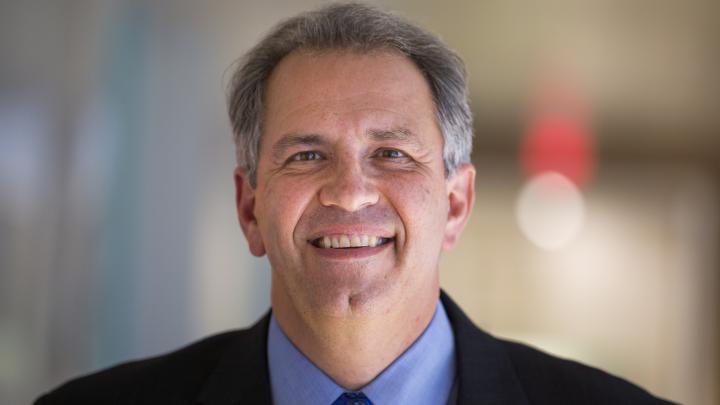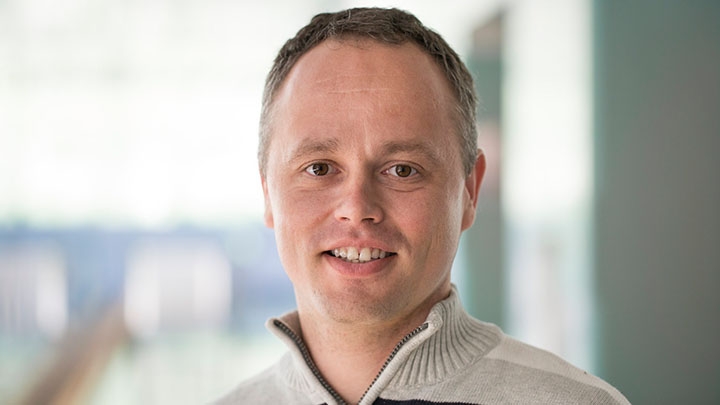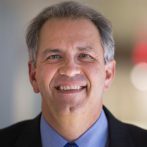In 2023, two mechanical engineering (ME) professors have been accepted to participate in the Fulbright Scholars Program. According to the Fulbright Scholars website, the program is “the United States government’s flagship program of international educational and cultural exchange, offers passionate and accomplished students and scholars in more than 160 countries the opportunity to study, teach, conduct research, exchange ideas, and contribute to mutual understanding.”

Professor of mechanical engineering, André Boehman will be making the journey to Spain during fall of 2023 to study, teach, and research at Centro Universitario de la Defensa. We asked him a few questions to find out more.
What made you decide to apply for a Fulbright Scholar Program?
I have collaborated and exchanged personnel with a research group in Spain (at the Universidad de Castilla-La Mancha, UCLM) since around 2000. I have had several faculty from UCLM spend time with my group on sabbatical, and hosted more than a half dozen students from UCLM. I have given lectures at the Ciudad Real and Toledo campuses on three different trips since 2008, and served as “el president” of a doctoral defense at UCLM. But I have not spent more than 1 week at a time in Spain and have not exchanged in a longer term collaboration myself, in person. So, when I saw this Fulbright opportunity in Spain it seemed like a great chance to engage in person with researchers in Spain.
I have been awarded a Fulbright Senior Scholar Award, co-sponsored by the Centro Universitario de la Defensa (CUD), a naval academy affiliated with the Department of Mechanical Engineering at the Universidad de Vigo, near Vigo, Spain, to spend Fall term 2023 at the CUD in Marín, Spain.
During your time in Spain for the Fulbright Program, what will you be doing?
I will be engaging in joint research, assisting in teaching some courses, and pursuing some independent research. The research themes I will address include energy efficiency and adoption of energy strategies with low carbon intensity. These challenges are particularly vexing for maritime operations, where shipping is being affected by stricter pollutant emissions standards and challenges of finding and adopting fuels and energy sources with low life cycle fossil carbon emissions. My group’s past and recent work with biofuels, synthetic fuels (dimethyl ether, Fischer-Tropsch fuels, and methanol), and hydrogen could be quite relevant to discussion of ways to decarbonize maritime activities, including those of the Spanish Navy. With my long-term collaboration with faculty at the Universidad de Castilla – La Mancha (Ciudad Real and Toledo campuses), and ongoing collaboration with Catalyxx (a spin-off from the giant Spanish energy company Abengoa), I have an understanding of the renewable energy landscape in Spain already.
What outcomes do you hope to have from this experience?
What I hope to bring back to U-M and ME when I return is a better understanding of solutions to the problems of decarbonizing marine and naval operations. This can, in the longer term, generate new research themes in the Auto Lab, to engage in decarbonization of off-road, rail, marine, and aviation sectors, in addition to our ongoing work related to decarbonizing on-road transportation. Also, in preparation for and as an outcome of this stay in Spain, I hope to dramatically improve my ability to speak and understand Spanish. I can converse and read in French, but my skills in Spanish are very poor at the moment.

Associate Professor, Gabor Orosz will also be traveling abroad to Hungary during the summer of 2023 as he continues research on autonomous robots. We asked him a few questions about his work and what he hopes to accomplish during his time in Hungary.
What made you decide to apply for a Fulbright Scholarship?
In 2022 I received a scholarship from the Hungarian Academy of Sciences, which gave me the opportunity to spend 4 months at the Department of Applied Mechanics at the Budapest University of Technology as a visiting researcher. While I visited Hungary many times in the past twenty years, I have never had the opportunity to live and work there. It was a truly amazing experience. I was able to see the tremendous development that happened at the Department of Applied Mechanics during this time: it grew from a collection of a few talented researchers to an internationally known research center. I very much enjoyed working with the people there and our collaboration was very productive. Thus, I was utterly delighted when I received an email from the Fulbright Scholar Program encouraging me to apply for a scholarship. This award will allow me to go back to Hungary for 4 months. I am really eager to return as I am certain that this will lead to a fruitful collaboration and a significant boost to my professional career.
During your time in Hungary, what will you be doing?
The title of my proposed research is “Balancing while rolling: from human riders to autonomous robots”. Electric scooters and electric unicycles (EUCs) have become pervasive in many cities around the world from Ann Arbor to Budapest. These vehicles can be used for regular commutes as well as for tourism, and a variety of business models have been used to deploy them in urban environments. The objective of this visit is to build up research collaboration between my group and researchers in Hungary in human and robotic balancing of micro-mobility vehicles. We will build nonholonomic models for EUCs and study theoretically and experimentally how human riders balance while maneuvering around obstacles. We will also design controllers for autonomous unicycles so that they can maintain safety in dynamic environments. With their speed, agility and maneuverability, autonomous EUCs may provide an efficient way of freight delivery in urban environments and solve the “last mile problem” in a variety of scenarios.
What outcomes do you hope to have from this experience?
We hope that the results from this research can be used in the future to inform both design and public policy around these small electric vehicles. New and improved designs, perhaps with balance assist control, could help new users navigate more safely. An understanding of the best uses of the vehicles could inform public policy. This Fulbright Scholarship will also provide opportunities to establish longer-term collaborations in research and education between the University of Michigan and the Budapest University of Technology. Research collaborations will be fostered by the exchange of PhD students and postdocs between the research groups in Ann Arbor and Budapest. This will allow us to build intercontinental bridges for fundamental research in dynamics and control and for applied research in autonomy, robotics, and transportation. The long-term education goal is to establish an exchange program that will link distant cultures and benefit diversity of education on both sides of the Atlantic.

